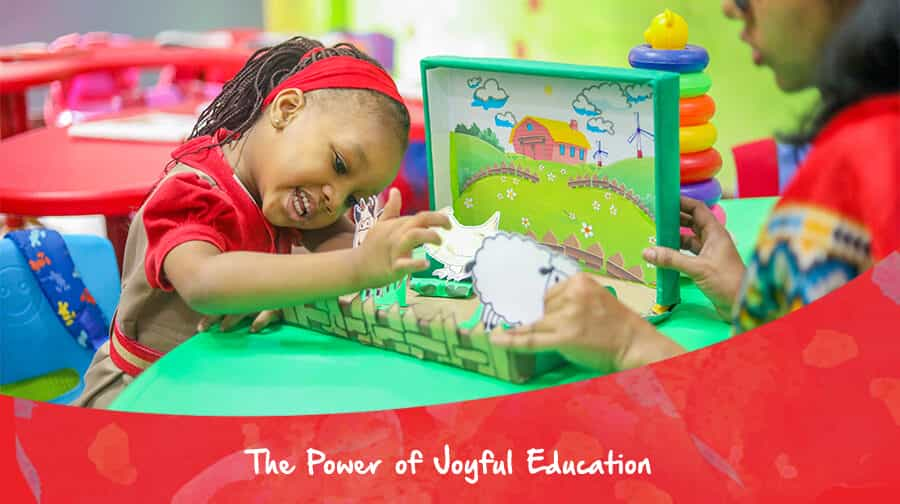Upon hearing the term ‘Joyful Education’, many people may wonder if it means extra-curricular activities. Many might even take it as the opposite of real learning because we perceive education as a serious matter and rarely link it to the concept of joy. For years, the education system has encouraged strictness to ensure great results. But the 21st century has brought many surprises for the people, including shifts in the perception of how to educate the current generation. The idea of integrating “the willingness to learn” into the system has produced the concept of ‘Joyful Education’.
Joyful learning aims to create a positive and encouraging learning experience for students. Educators believe that the more the students enjoy their classes, the more their interest in learning grows. The aim is to encourage a love of learning and foster emotional connections to education. Using this concept, schools are aiming to shift away from traditional learning methods and embrace innovative techniques to enhance students’ knowledge and skills.
International Baccalaureate (IB) schools are an excellent example of joyful learning. IB schools aim to create a supportive, inclusive, and stimulating learning environment that promotes curiosity, creativity, and critical thinking. Moreover, joyful learning creates a sense of achievement through supportive and cheerful activities. This promotes enthusiasm amongst children and the frequency of participation increases. Additionally, the method encourages children to be open to ideas, accept differences, and work as a team. This not only enhances their personalities but also prepares them for the world beyond school. Educators also talk about how stressful learning can discourage students with learning difficulties. The more positivity there is in the classroom, the better the retention rate. Such a favorable environment increases dopamine levels in students, which in turn leads to better outcomes.
In today’s world, theory and practical knowledge go hand-in-hand. Education is no longer limited to textbooks and teachers focus on overall development. Joyful education ensures that a student interacts with the environment and learns through interaction. For example, many teachers create puzzles and quizzes to improve logical thinking. Another example (considering older students) is Debates. Group discussions or debates encourage students to conduct in-depth research. This enhances their research capabilities and presentation skills. Students learn to view topics objectively, find solutions, and respectfully state their opinions.
At Radcliffe World Academy we adopt various ways to encourage overall development among students. Our teachers incorporate playful activities, hands-on experiences, and student-led projects into their teaching. This aligns with the principles of joyful learning and provides opportunities for students to collaborate, express themselves, and work in small groups. The students who learn in this environment are often more confident than the others and take on leadership roles without much hesitation. Our teachers also explore, locate, and customize study materials as per the understanding of their class. For instance, understanding a chapter through an animated video, or enacting a play for a better understanding are common activities at Radcliffe IB Schools.
As teachers, we understand the apprehensions associated with such methods of learning. Nonetheless, changing with the times is essential. Today’s children are more creatively inclined and tend to work passionately towards their goals. It is our duty, as a part of the system, to let them spread their wings and take flight.




